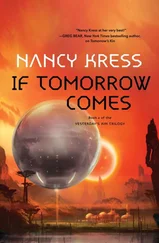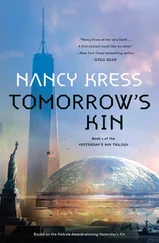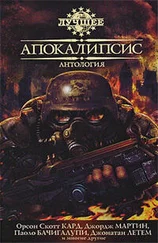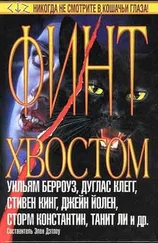“You brought it up.”
“Are you playing rich princess out here?” he said. “None of the rules are for you?”
He’d been fooled by the mountains close enough to walk to and the estates lined up a quarter-mile up the street. He’d been fooled because Bob had made sure everyone kept the detached townhouses military neat, with matching exterior paint. But Foothill Park had been home to some of the county’s poorest residents, the few who had dark skin or spoke Spanish at home. She and her friends used to call it “Trailer Park,” although she couldn’t understand why.
“This is my grandmother’s house,” she said. “She moved into a tiny little two-bedroom she could barely afford so I could go to school here. I was her second chance to get it right, and she changed my life. Gram bought this house when they were cheaper. She never went to college, but I’m in grad school. When Gram got sick, I took a year off to move back in. Plain old cancer—nothing fancy. Old-fashioned dying takes time. So here I am.”
He stared at her with pale brown eyes, the color of the houses’ walls.
“Hold on a minute,” he said.
He went back to his car, ducking out of sight. His sudden absence felt menacing, as if she should run and lock the door rather than waiting. But Nayima was not afraid of the cop, though she probably should be. What scared her more was the tasks waiting for her: the tedium and horror of her days.
He returned with a plastic shopping bag, heavy from its load. When he gave her the bag, she found two packages of whole chicken parts, frozen solid.
“Do you have electricity where you live?” she said.
He shook his head, a shadow across his brow. “Nah. Bunch of us were sweeping some houses on the hill. Guy up there had a generator and a subzero freezer. Food’s hard as a rock.”
The magnitude of the gift suddenly struck her: She had not had meat in a month, except a chunk or two in canned soup. She hoped the man on the hill had given up his food voluntarily, or that he had left long ago. But if he had left, why would his generator still be on?
“Thank you,” she said. “I’m Nayima. What’s your name? I mean… your first name?”
He ignored her question, just like he ignored her underwear.
“Don’t ruin it,” he said. “I don’t have time to cook. I’ll be back tomorrow for lunch.”
• • • •
After Nayima had cleaned and fed Gram in the morning, she grilled chicken on Mr. Yamamoto’s patio Grillmaster instead of washing clothes like she’d planned. The chicken had mostly thawed overnight, so she started cooking first thing. She retrieved the spices from Mr. Yamamoto’s gift box and rolled the chicken pieces in sage, garlic, and paprika the way Gram had taught her. She spent an hour looking for salt—and found it in a hidden, unruined corner of Shanice’s kitchen. She’d had a memory of Shanice’s mother keeping a box of salt in that exact spot. She could almost hear her friend’s laughter.
Nayima hadn’t had much practice on the grill—meat had disappeared fast, even before the supermarkets shut down—so she hovered over the chicken to be sure she didn’t burn it. The patio smelled like a Fourth of July cookout. She didn’t mind the new smoke, since it carried such rich, tasty scents.
She tested a wing too soon. It was too hot, meat bloody near the bone, but her mouth flooded with saliva at the taste of the spices. Such flavor! She wanted to eat the food half raw, but she waited, turning carefully, always turning, never letting the skin burn black.
At noon—the universal lunchtime—he still had not arrived.
Nayima’s stomach growled as she turned Gram from the left side to the right, pulling her higher in the bed beneath her armpits, supporting her against the pillows. Gram moaned, but did not scream. Nayima changed the bag for Gram’s feeding tube and kissed her forehead. “I love you, Gram,” she said. But Gram was already sleeping.
By one o’clock, Nayima stopped waiting for the cop. She ate three pieces of the chicken: a thigh, a leg and a wing, sure to leave plenty in case he brought friends.
He came alone at three-fifteen, coasting up to her curb in the same filthy cruiser. In brighter daylight, earlier in the day, his face looked smudged across his forehead and cheeks. He might not be bathing. All of him smelled like smoke.
“The chicken’s ready,” she said.
“J gets burned in twenty-four,” he said, as if in greeting. His voice was hoarse. “You understand that, right?”
“I’ll fix your plate,” she said.
They ate at Mr. Yamamoto’s cedar patio table beside the grill. Nayima offered him one of her precious beers, but he shrugged and shook his head. She had found paper plates in the kitchen, but they ate with their fingers. It might have been the best chicken she’d ever cooked. She had another leg, stretching her bloated stomach. They studied their food while they ate, licking their fingers even though all the new protocols said never to put your fingers in your mouth. She hoped it wouldn’t be too long before she would have chicken again.
“What’s going on out there?” she said.
“Bad,” he said mournfully. “All bad.”
She knew she should ask more, but she didn’t want to ruin their meal.
The question changed his mood. He wiped his fingers across his slacks, standing up. She wondered if he would try to make a sexual advance, but that thought felt silly as she watched him stride toward the glass patio door to the house. She was invisible to him.
“Be right back,” he said.
“Bathroom’s the first left.”
She decided she would explain herself to him, present her case: how a jostling car would torture Gram, how anyone could see the dying old woman only needed a little more time.
A gunshot exploded inside the house.
Nayima leaped to her feet so quickly that her knee banged against the table’s edge.
Looters . Had looters invaded the house and confronted the cop? Her own gun was far from reach, hidden beneath the cushion on Mr. Yamomoto’s sofa, where she’d slept. Her heart’s thrashing dizzied her.
The glass patio door slid open again, and Sanchez slipped out and closed it behind him again. He did not look at her. He went to the grill to pick over the remaining chicken pieces.
“What happened?” Nayima said.
Sanchez’s shoulders dropped with a sigh. He looked at her. His eyes said: You know .
Nayima took a running step toward the house, but her knee pulsed with pain. Instead, she plopped down hard on the bench. She held the edge of the table to keep her balance when the bench teetered, nearly falling.
Sanchez sat on the other side of the bench, righting it beneath his weight. He planted both elbows on the table, stripping meat from the bones with his teeth.
The smell of his sweaty days, the smell of the smoky sky and the cooking bird, the smell of Gram’s hair on hers from Gram’s hairbrush, made Nayima feel sick. Her food tried to flee her stomach, but she locked her throat. Her grasping fingers shook against the picnic table’s rough wood. She could not breathe this thick, terrible air.
“It’ll be dark soon, so it’s best to get on the road,” Sanchez said. “The 210’s pretty clear going east. Then you’ll want to go north. They say the Five is still passable, for now. You don’t want to be anywhere near here tomorrow.”
She wanted to float away from his voice, but every word captivated her.
“Where?” she whispered.
“Anywhere but San Francisco. My family headed to Santa Cruz. I’ll be going up there too when all this is done.”
He reached into his back pocket and laid a smudged index card on the table, folded in half. She didn’t touch it, but she saw a shadowed Santa Cruz address in careful script.
Читать дальше












